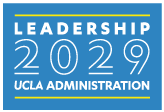Management Topic: Strategic Talent Planning Part 2: Development & Feedback
Dear Colleagues,
As mentioned during last month’s MMT, a key component of the strategic talent planning process includes “talent review” (identifying, planning, and acting on talent needs). A talent review involves identifying the skills, knowledge, abilities, and competencies of current employees and aligning their development to their aspirations for career advancement. In order for this alignment to occur, management must have development and feedback discussions with individual employees regarding their interest in upward or lateral movement in their careers. Development and feedback allow the organization to continue moving forward, continuously evolving and advancing to stay efficient and effective. When the leaders of an organization implement these tools, they demonstrate a commitment to the advancement of the organization as well as the growth and advancement of the individuals who make up the organization. I’ve personally seen the impact these changes can have.
My college coach always told me that the lessons I learned playing football would help me in life. I experienced three coaching transitions during my college football career at Utah State University. Whenever a new coach took over the program, they would have one-on-one meetings with the players. Instead of seeing this as an opportunity to get to know the new coaching staff, players would often anticipate the worst. A new coach meant restructuring of the team, which could mean players getting cut.
That fear was real for me. I started doubting myself, along with the skills I acquired, a year before the new coaches arrived. It felt like the life I knew would soon be over and I would be on my way back to California. Surprisingly, that wasn’t the case. The new coaches assessed each player and how we could best help ensure the team’s success. Once they completed their assessments, shifts were inevitable. Despite knowing that we would remain on the team, there was still the uncertainty of how and in what capacity we would play. What if they moved me to a position I’d never played? It takes more than restructuring to make teams win.
They began to train us in our new positions so we would become proficient in these roles and confidently complete the tasks before us. This was when I saw organizational change and development come to life.
Development and feedback are more than merely telling an employee how well or how poorly they performed. It’s about utilizing the skills someone possesses and building on those skills to make them even more effective. Our diversity gives the organization the ability to thrive, although understanding those you have in your organization is critical to effective development.
We all fall victim to being stagnate at different stages in life, but being able to tap into the interests and expertise of our employees can prevent employees from feeling like they are on a never-ending hamster wheel. Building relationships with your employees is key to their development. Finding out what they like about their position and how they would like to grow is essential. Do the research and provide high-quality and effective training to employees, so their skills can be strengthened, new skills can be acquired, and the value of their contributions to the organization is increased because they know you’re investing in them. This approach establishes a level of trust and confidence that their employer is looking out for their best interest. The employee has to see their development as not only being beneficial, but enjoyable.
Positive feedback gives employees the mindset that they can be successful. Praise employees for what they do, and highlight the journey. The progress one makes should be just as important as the results they produce. Doing this gives employees the mindset to continue growing their knowledge base. Feedback should lead people towards growth and improvement, not decline and regression. Constructive feedback includes goal-setting which allows the employee to know, sooner rather than later, if they are on the right path. When the employees of an organization understand the mission and goals, and are trained and supported in achieving them, the organization is stronger and more successful.
Development and feedback discussions should be individualized but they don’t need to be complicated. Below are some helpful tools to utilize from the management consulting company Gartner. Please note, these tools should be utilized in conjunction with guidance and oversight from CHR Learning & Organizational Development.
- Discuss Development Plans and Align on Accountability: This tool includes sample Nine-Box Development Recommendations and sample Five-Box Development Actions to guide development decisions, sample Development Strategies, and a Talent Review Action Step Template, Talent Review Outcome Form, and Individual Development Plan Template.
- Identify High-Potential Employees: This tool provides a sample discussion guide for HR to share with leaders to help them identify high-potential employees.
Additional courses and tools to learn more about this topic:
- UC Giving and Receiving Feedback (LMS Course)
- Coaching Using Feedback (LMS Course)
- UC Coaching for Performance and Development (LMS Course)
- Mentoring Matters: Effective Practices for Mentors and Mentees (LMS Course)
- Employee Engagement (LMS Course)
- UC Setting Expectations and Individual Performance Goals (LMS Course)
- September 2022 MMT: UCLA Development Programs
- February 2022 MMT: Developing Represented Staff
- December 2021 MMT: Goal Setting and Professional Development
As management discusses their support for staff in achieving career and professional goals, and formulating individual development plans, it’s important for management to be cognizant of the need to set clear and realistic expectations throughout this process. Management cannot guarantee that desired positions will be available, nor can they guarantee promotional opportunities. Although completion of an individualized development plan does not guarantee a change in role, it ensures staff will be as prepared as possible for potential roles should they become available in the future. Again, strategic talent planning aims to ensure that a qualified pool of applicants is available should a vacancy arise, rather than an “heir-apparent”. Additional development support can be found on the CHR Learning & Organizational Development website.

Interested in reviewing prior months’ topics? Visit our Monthly Management Tips website.
Do you have feedback, questions or a suggested topic you would like to learn more about? Please email: managementtips@ucla.edu.
Want to receive Monthly Management Tips emails? Sign up for our list!

